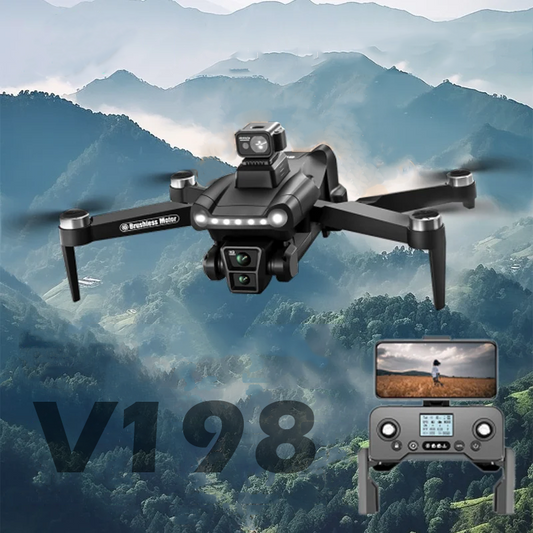Drones Transforming Agriculture: Key Impacts

The agricultural industry is witnessing a revolution thanks to the integration of drone technology. Drones, equipped with advanced sensors and cameras, are reshaping how farmers approach crop management, precision agriculture, and sustainability. This article explores the key impacts of drones in agriculture, focusing on their benefits, applications, and the future of farming.
1. The Rise of Drones in Agriculture
Drones in agriculture are not just a trend; they are becoming essential tools for modern farmers. With the ability to cover large areas quickly and efficiently, agricultural drones are changing the way farmers monitor their crops. This rise is driven by the need for increased efficiency and productivity in a world facing growing food demands.
- Precision Agriculture Drones: These drones use GPS and remote sensing technology to gather data about crop health, soil conditions, and other vital metrics. By providing real-time information, they help farmers make informed decisions, leading to better resource management.
2. Enhancing Crop Monitoring

One of the most significant advantages of drone technology in agriculture is its ability to monitor crops effectively. Traditional methods of crop monitoring are labor-intensive and time-consuming. Drones streamline this process by providing aerial views of the fields, enabling farmers to identify issues quickly.
- Agricultural Drone Technology: Drones equipped with multispectral and thermal cameras can detect variations in plant health, allowing farmers to identify areas needing attention. This technology helps in timely interventions, reducing crop losses and optimizing yields.
3. Benefits of Drone Farming
The benefits of drones in farming extend beyond just monitoring. They provide a range of advantages that contribute to sustainable agricultural practices.
-
Improved Efficiency: Drones can cover large fields in a fraction of the time it would take traditional methods. This efficiency allows farmers to spend more time on strategic planning and less on manual labor.
-
Cost Savings: By using drones for tasks like crop spraying and monitoring, farmers can reduce labor costs and minimize the use of fertilizers and pesticides, promoting more sustainable farming practices.
-
Enhanced Data Collection: Drones facilitate the collection of high-resolution data, which can be analyzed to improve crop management strategies. This data-driven approach leads to better decision-making and increased productivity.
4. Applications of Drones in Agriculture

Drones are versatile tools with a wide range of applications in agriculture, making them valuable assets for farmers.
-
Crop Spraying Drones: These drones are capable of applying fertilizers and pesticides with precision, reducing waste and ensuring that crops receive the right amount of treatment. This targeted approach minimizes environmental impact and maximizes crop health.
-
Drone Mapping in Agriculture: Drones can create detailed maps of fields, helping farmers plan irrigation, planting, and harvesting schedules. This mapping capability enhances resource management and improves overall farm efficiency.
-
Soil Analysis: Drones equipped with specialized drone sensors can analyze soil conditions, providing insights into moisture levels, nutrient content, and other factors affecting crop growth. This information allows farmers to tailor their practices for optimal results.
5. Drones for Sustainable Farming
As the agriculture sector faces increasing scrutiny over its environmental impact, drones offer a solution for sustainable practices.
-
Resource Management: By enabling precise applications of water, fertilizers, and pesticides, drones help minimize waste and reduce the overall environmental footprint of farming operations.
-
Reduced Carbon Footprint: Drones require less fuel and labor compared to traditional farming methods, contributing to lower greenhouse gas emissions. This reduction is crucial for sustainable farming initiatives.
-
Biodiversity Preservation: With targeted applications and improved crop health monitoring, drones can help maintain biodiversity in agricultural landscapes, promoting healthier ecosystems.
6. Challenges and Considerations

While the benefits of drones in agriculture are significant, there are challenges to consider.
-
Regulatory Issues: Farmers must navigate regulations regarding drone use, which can vary by region. Understanding these regulations is essential to ensure compliance and avoid fines.
-
Initial Investment: The cost of purchasing and maintaining drones can be a barrier for some farmers. However, as technology advances, prices are expected to decrease, making drones more accessible.
-
Training and Knowledge: Effective drone operation requires training and knowledge. Farmers need to invest time in learning how to use drones and interpret the data they collect.
7. The Future of Drone Technology in Agriculture
The future of drone technology in agriculture looks promising. With ongoing advancements in technology, we can expect to see even more applications and benefits.
-
Integration with AI and Machine Learning: The combination of drones with artificial intelligence and machine learning will enhance data analysis capabilities. Farmers will be able to predict crop yields more accurately and respond proactively to issues.
-
Increased Adoption: As awareness of the benefits of drones grows, more farmers are likely to adopt this technology. This trend will lead to a more efficient and productive agricultural sector.
-
Collaboration with Other Technologies: Drones will increasingly work in tandem with other technologies, such as IoT devices and satellite imaging, creating a comprehensive approach to modern farming.
Drones Transforming Agriculture
Drones are undeniably transforming agriculture, offering innovative solutions to the challenges faced by farmers today. From improving crop monitoring and precision farming to promoting sustainable practices, the impact of drones on agriculture is profound. As technology continues to evolve, the agricultural sector stands to benefit significantly, ensuring food security and environmental sustainability for future generations. By embracing drone technology, farmers can enhance their operations, making agriculture more efficient, productive, and sustainable.









